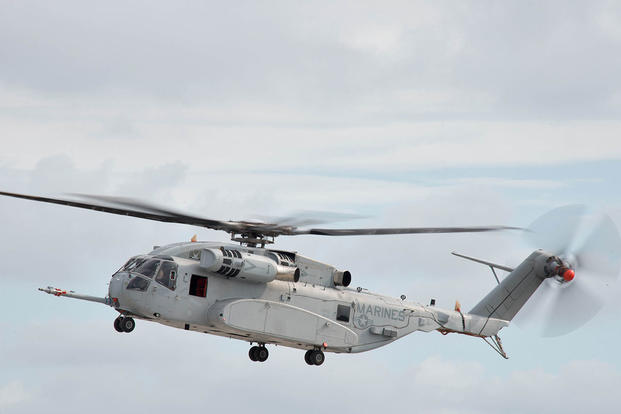WEST PALM BEACH, Fla. — Lt. Col. Jonathan Morel became the first U.S. Marine to fly the Corps’ CH-53K helicopter Dec. 18, 2015 at Sikorsky Aircraft Corporation's Development Flight Center in West Palm Beach, Florida.
Morel, a test pilot with Air Test and Evaluation Squadron 21, and former Weapons and Tactics Instructor with HMH-466 “Wolfpack”, took off in Engineering Development Model 1 at 10:30 a.m. to conduct direct mode mechanical stability and hover flight control response data collection.
The flight test ran for 1.5 hours and now marks the sixth flight for the CH-53K.
“The aircraft flew very close to the way the simulators and engineers predicted it would,” said Morel. “The aircraft was quite stable and handled very predictably. You can feel the huge amount of power and overall, it definitely felt like a 53. Marines are going to love to fly this aircraft.”
The King Stallion entered flight test phase on Oct. 27, 2015.
“This flight brings us to 8.2 hours on the first test aircraft, and our second test aircraft is almost ready to start flying," said Col. Hank Vanderborght a U.S. Marine Corps program manager for the heavy lift helicopter program. "The program remains on track for initial operational capability in 2019.”
The CH-53K is the Marine Corps' new build, heavy lift replacement for the CH-53E, which will transport Marines, heavy equipment and supplies during ship-to-shore movement in support of amphibious assault and subsequent operations ashore. The CH-53K will be one of the key enablers of future joint war-fighting concepts by drastically expanding the fleet's logistical throughput through the joint area of responsibility. Using proven and matured technologies, the King Stallion is designed to lift a 27,000 pound external load at a mission radius of 110 nautical miles in Navy high/hot environments — three times the CH-53E lift capability.





























